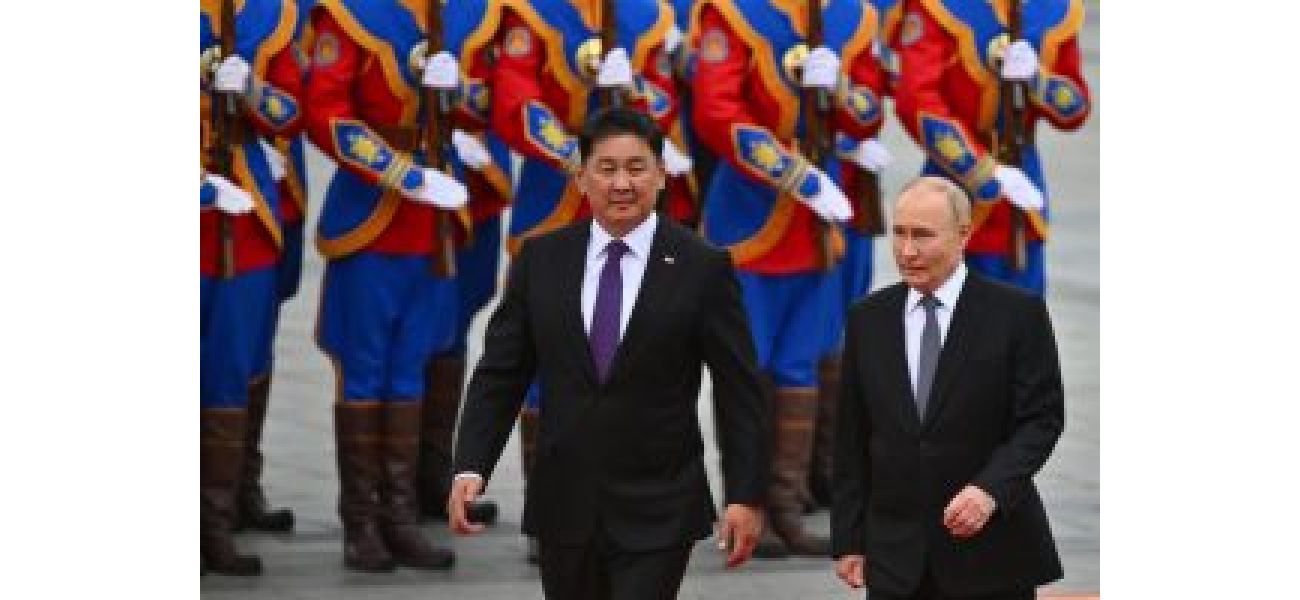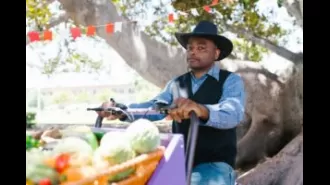Russia's President Putin has signed a decree to withdraw from the International Criminal Court (ICC).
Putin's recent visit to Mongolia, a member of the ICC that has an arrest warrant against him, highlights declining influence of international institutions meant to maintain global order.
September 3rd 2024.

In a surprising turn of events, Russian President Vladimir Putin made a bold move by visiting Mongolia on September 2nd, despite the fact that the country is a member of the International Criminal Court (ICC) and has had an arrest warrant out for him since 2023. This visit is a clear example of the weakening power of international institutions that were created to maintain global order. According to the court's founding treaty, the Rome Statute, Mongolia was obligated to arrest Putin, who has been accused by the ICC of abducting children from Ukraine during the ongoing conflict between the two countries. However, instead of following through with the warrant, Mongolia extended a warm welcome to Putin, much to the dismay of Ukraine and its Western allies.
Ukraine's foreign ministry expressed disappointment in Mongolia's decision, calling it a setback for the international criminal law system. Heorhiy Tykhyi, a spokesperson for the ministry, stated that by allowing a wanted criminal to escape justice, Mongolia was also taking on the responsibility for the war crimes committed by Putin. Mongolia, a country with a population of only 3.3 million people but a vast land area, has traditionally based its foreign policies on its close ties with Russia and China. However, in recent years, the country has been working towards establishing itself as a more independent player on the global stage by fostering friendly relations with other nations, such as the United States, Germany, Japan, and South Korea. This approach aims to position Mongolia as a neutral ground for diplomatic discussions. But with Putin's visit, the country found itself in a difficult position, trying to balance its commitments to the Western-led international order, which includes the ICC, while maintaining its friendly relations with its powerful neighbors.
Upon his arrival in Ulaanbaatar, Putin was greeted with great fanfare, as he and Mongolian President Khurelsukh Ukhnaa made their way through the city's main square. The guard of honor, dressed in striking red and blue uniforms inspired by the personal guards of Genghis Khan, welcomed the Russian leader. After paying their respects at a statue of the 13th-century founder of the Mongol Empire, Putin and Ukhnaa proceeded inside the Government Palace for their discussions. A small group of protesters attempted to display a Ukrainian flag before the ceremony, but they were quickly removed by the police. Meanwhile, some demonstrators held up posters demanding the removal of "war criminal" Putin.
Prior to Putin's visit, Ukraine had urged Mongolia to surrender him to the ICC in The Hague. However, there were concerns from the European Union that Mongolia might not comply with the warrant. This is partly due to the fact that the ICC does not have a strong enforcement mechanism, and member states may be exempt from making arrests if it conflicts with other treaty obligations or diplomatic immunity granted to another country.
Putin's visit to Mongolia highlights the limited power of global bodies to hold countries like Russia accountable for their actions. Despite the numerous sanctions imposed on Russia by the US, UK, EU, and other nations following its invasion of Ukraine in 2022, the Russian war machine continues to cause devastation. This further demonstrates the ineffectiveness of international laws and sanctions in deterring such actions. It is clear that these events will make it even more challenging to enforce such measures in the future.
Ukraine's foreign ministry expressed disappointment in Mongolia's decision, calling it a setback for the international criminal law system. Heorhiy Tykhyi, a spokesperson for the ministry, stated that by allowing a wanted criminal to escape justice, Mongolia was also taking on the responsibility for the war crimes committed by Putin. Mongolia, a country with a population of only 3.3 million people but a vast land area, has traditionally based its foreign policies on its close ties with Russia and China. However, in recent years, the country has been working towards establishing itself as a more independent player on the global stage by fostering friendly relations with other nations, such as the United States, Germany, Japan, and South Korea. This approach aims to position Mongolia as a neutral ground for diplomatic discussions. But with Putin's visit, the country found itself in a difficult position, trying to balance its commitments to the Western-led international order, which includes the ICC, while maintaining its friendly relations with its powerful neighbors.
Upon his arrival in Ulaanbaatar, Putin was greeted with great fanfare, as he and Mongolian President Khurelsukh Ukhnaa made their way through the city's main square. The guard of honor, dressed in striking red and blue uniforms inspired by the personal guards of Genghis Khan, welcomed the Russian leader. After paying their respects at a statue of the 13th-century founder of the Mongol Empire, Putin and Ukhnaa proceeded inside the Government Palace for their discussions. A small group of protesters attempted to display a Ukrainian flag before the ceremony, but they were quickly removed by the police. Meanwhile, some demonstrators held up posters demanding the removal of "war criminal" Putin.
Prior to Putin's visit, Ukraine had urged Mongolia to surrender him to the ICC in The Hague. However, there were concerns from the European Union that Mongolia might not comply with the warrant. This is partly due to the fact that the ICC does not have a strong enforcement mechanism, and member states may be exempt from making arrests if it conflicts with other treaty obligations or diplomatic immunity granted to another country.
Putin's visit to Mongolia highlights the limited power of global bodies to hold countries like Russia accountable for their actions. Despite the numerous sanctions imposed on Russia by the US, UK, EU, and other nations following its invasion of Ukraine in 2022, the Russian war machine continues to cause devastation. This further demonstrates the ineffectiveness of international laws and sanctions in deterring such actions. It is clear that these events will make it even more challenging to enforce such measures in the future.
[This article has been trending online recently and has been generated with AI. Your feed is customized.]
[Generative AI is experimental.]
0
0
Submit Comment





